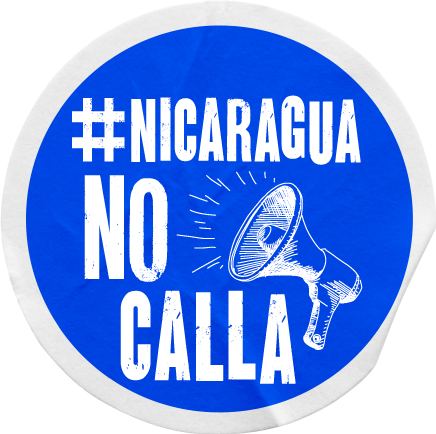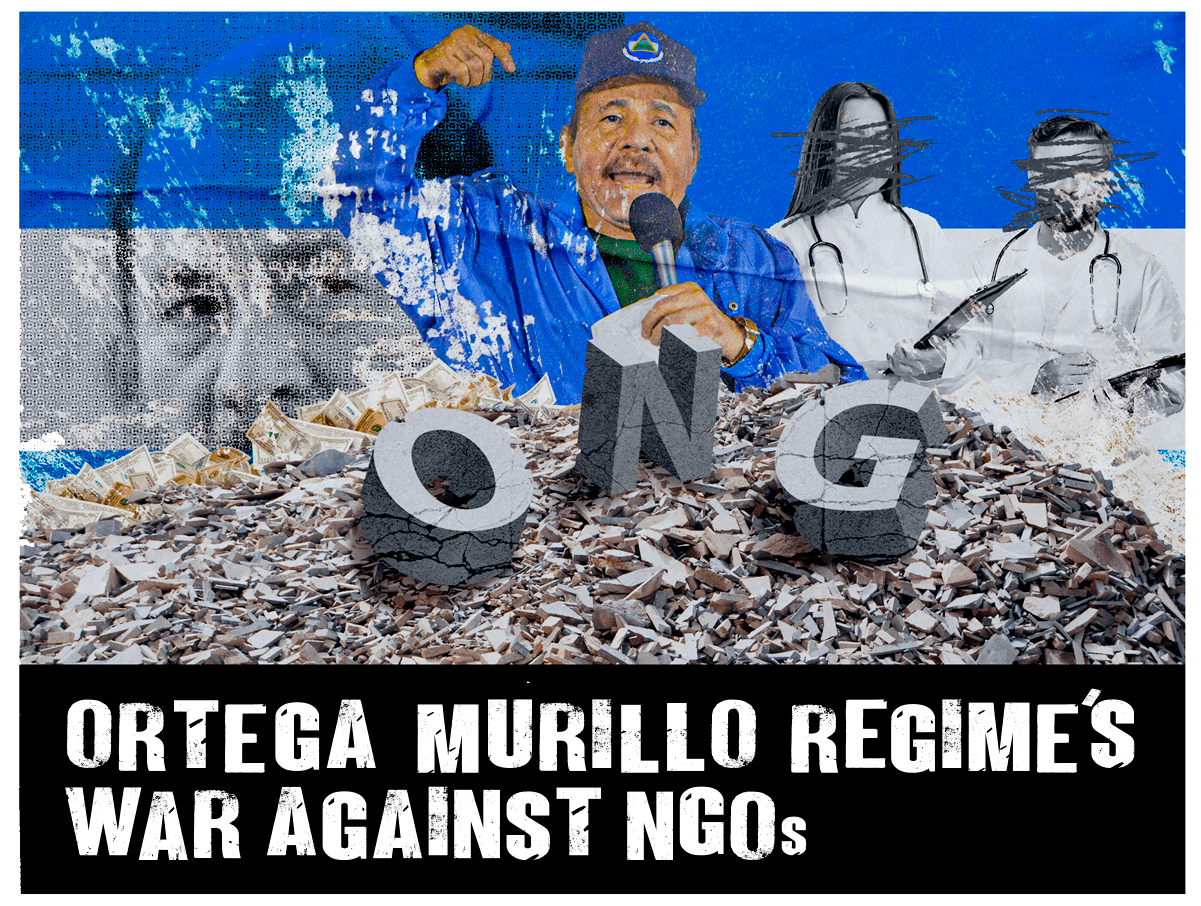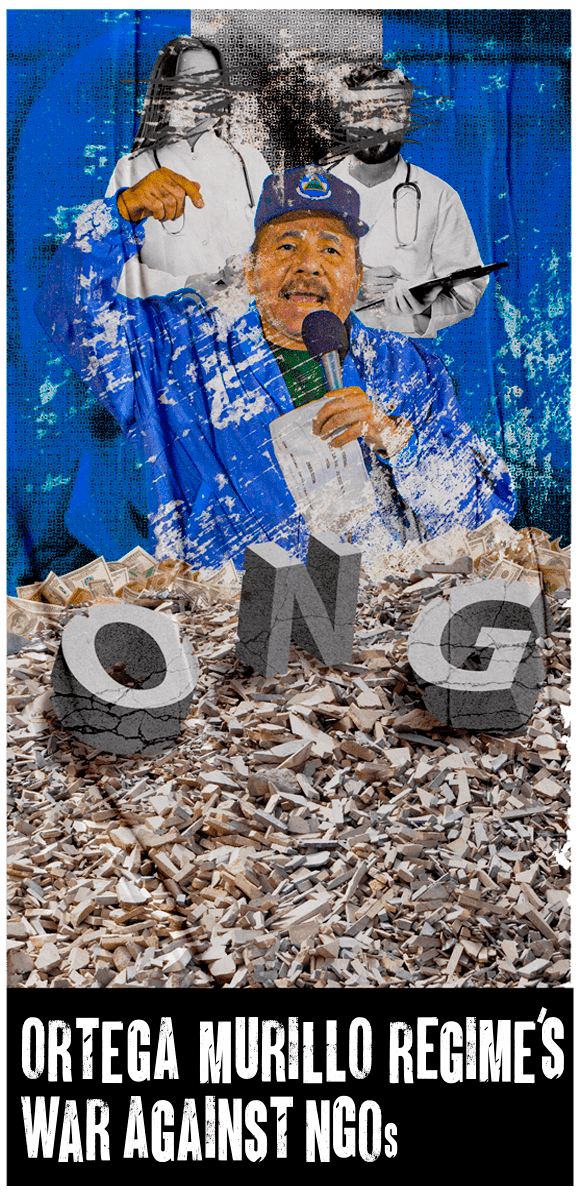The couple governing Nicaragua with an iron fist started a confrontation with these organizations in 2008, but it was hastened in 2018. Since then, it has canceled the legal status of 40 NGOs and 15 more will have in the coming days. About half of them undertook projects for the benefit of the health of vulnerable population groups, particularly in the face of covid-19.

By the end of July, during the social-political crisis that Nicaragua is facing, its inhabitants were shocked by the news of a 13-year-old girl who bled to death after giving birth. The death occurred in the health unit at Laguna de Perlas –municipality located almost 400 kilometers from the capital city and part of the autonomous region of the South Caribbean Coast-. The adolescent lived in La Quinta, a remote rural village of Pueblo Nuevo community; to get there from the capital city takes a 6-hour ride, then a 2-hour boat ride, and finally an hour of a horse ride.
The youngster’s mother – who now takes care of her newborn granddaughter – and representatives of some organizations consider that this death could have been avoided, as has previously occurred giving that adolescent pregnancies are common in the area, sadly. The thing is that a Non-Governmental Organization (NGO) or even the Ministry of Health (MoH) could have taken specialized care during the whole pregnancy and delivery. Particularly, they could have moved her to a Maternity Center in advance as authorities do for pregnant women who live far from a health unit. The maternity centers are shelters, and before the 2018 crisis, they worked jointly with the NGOs, local governments, and health system.
Fort Bluefields’ feminist leader, Perla Wilson, “what happened to the girl in Laguna de Perlas” shows the setting back in the adolescents’ education as a result of the closure of many NGOs that worked with them. She considers that if they wanted to “have more control over the NGOs” they could have established alliances to keep the programs under the government’s supervision.
Doctors and activists go further and consider that the pregnancy must have been prevented now that the victim was a child and her body was not ready for going through delivery. Not to mention that, according to pregnancy law, pregnancy resulted from rape. Many NGOs dedicated to health training and prevention have been forced by the Sandinista government to close during the increasing repression of the last three years. Thus, if their work to prevent adolescent pregnancy was scarce before – Nicaragua having the highest rates of it in the region -, now it is hardly anything.
Between December 2018 and August 16th this year, 40 NGOs have had their legal status canceled by the Ortega-Murillo regime, and before the month is finished, another 15 will be added to the list given that their legal status’ annulation project is already at the National Assembly. After the cancellation of their legal status, these NGOs properties and assets are confiscated.
Of those 40 ones that until August 16th have had their legal status canceled, 34 are Nicaraguan; the remaining ones are foreign. Nine had it canceled in December 2018; one in June 2020; 24 in July 2021, and six more had it on August 16th this year. The last ones are foreign and gave financial and technical support to local organizations. At least 16 of them all were working in the health field, and the foreign six were focused on vulnerable areas in the autonomous regions in the Caribbean Coast of Nicaragua.
The number of NGOs working in the health fields is no public information, unfortunately, and neither is the total number of those operating. All the governments have not disclosed that number which could overpass the four thousand, according to researches completed by the organizations themselves, with the caveat that evangelic churches, charity organizations, and other non-profitable organizations are included in it. The paper Mapeo y Caracterización de las Organizaciones de la Sociedad Civil en Nicaragua specifies that since their appearance in the 80s until 2005, more than three thousand legal status had been granted.
The only known thing is that there was a boom of them at the beginning; afterward, when Ortega lost the elections, many fragments of his party found a fertile ground in NGOs to continue with their solidarity works; others simply started a new way of living in them.
The official arguments used in 2018 for eliminating the first nine ones was that they “developed activities different from their goals and objectives” and that they “received, channeled provided funds for terrorist actions, and trained groups for performing actions aimed at destabilizing the country”. In public, Ortega and Murillo accused them of promoting the so-called coup in April that year; something that human rights international organizations part of the United Nations (UN) and the Organization of American States (OAS) assure that did not happen, but increasing repression against peaceful demonstrators in which crimes against mankind took place.
Those whose legal status was canceled in 2018 are: Centro Nicaragüense de Derechos Humanos (Cenidh), Hagamos Democracia (HD), Instituto de Estudios Estratégicos y Políticas Públicas (Ieepp), Fundación del Río (FdR), Instituto para el Desarrollo y la Democracia (Ipade), Centro de Investigación de la Comunicación (Cinco), Instituto de Liderazgo de las Segovias (ILLS) y Fundación Popol Na and the Centro de Información y Servicios de Asesoría en Salud (CISAS).
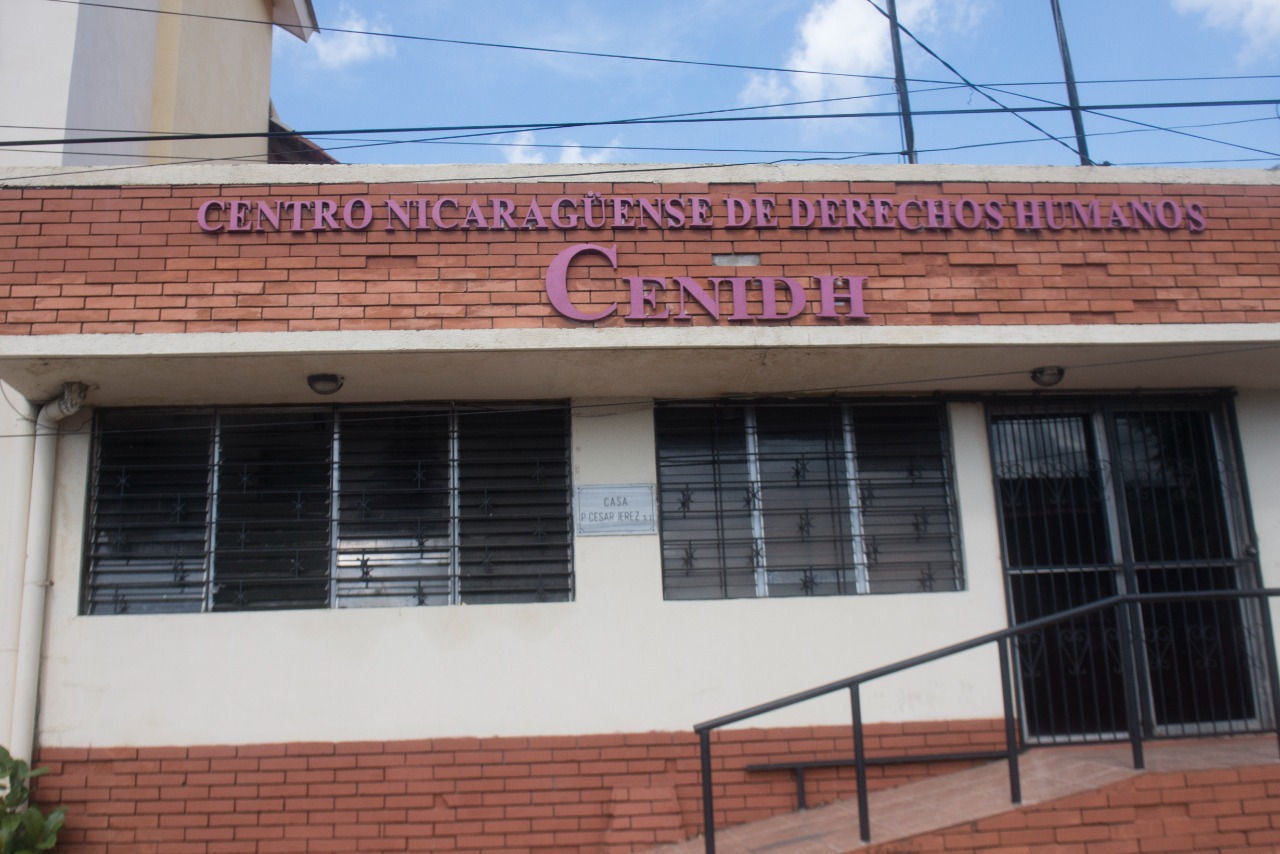
Cenidh offices
In the case of the Ieepp, they prosecuted its director, Félix Maradiaga, together with the cancellation of its legal status. It is supposed to be that it was closed in 2019, after the approval of an Amnesty Law that benefited the political prisoners accused of participating in the so-called coup. Nonetheless, Maradiaga, already a presidential candidate for the Unidad Nacional Azul y Blanco (UNAB), was arrested on June 8th, 2021, and is one of the seven aspirants for the opposition’s single candidacy who remains missing since his arrest.
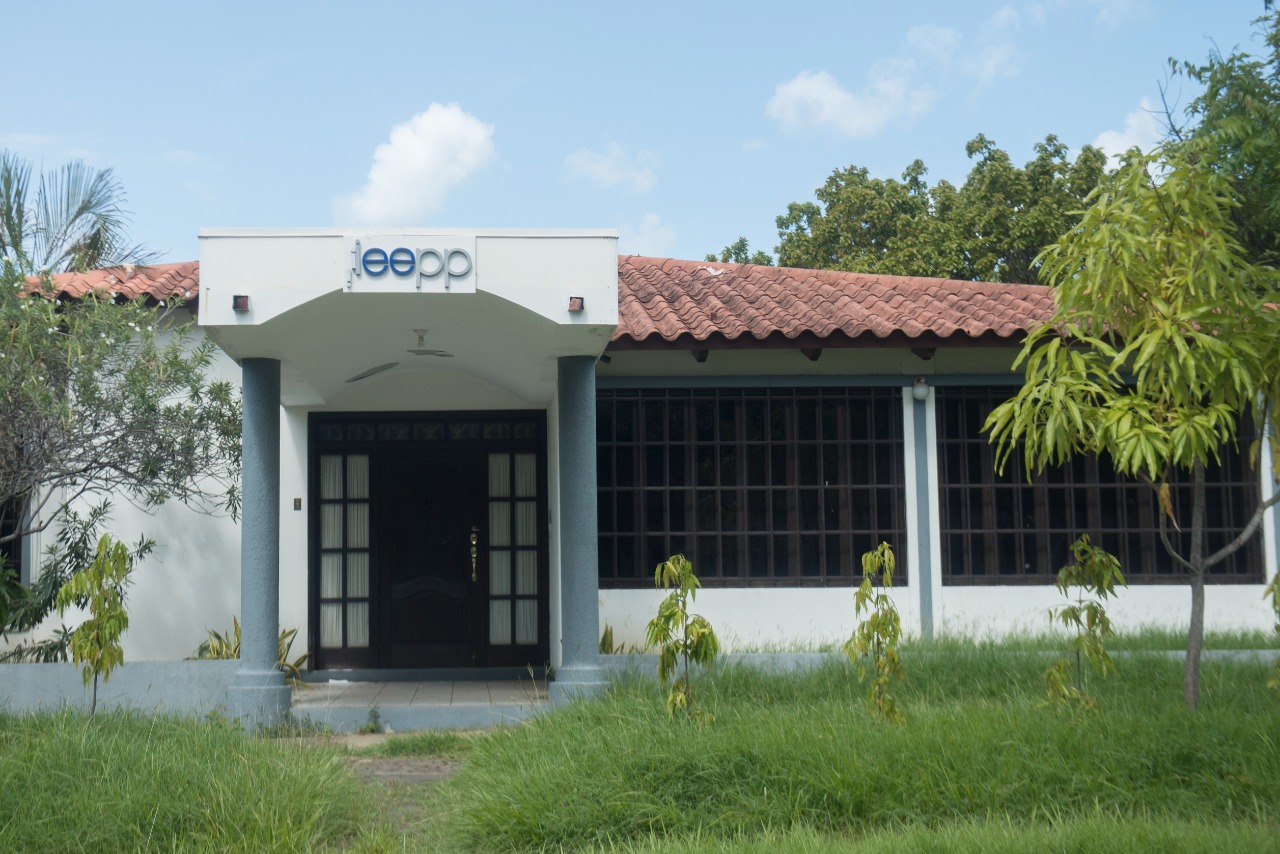
Leepp offices

Between December, 2018, and 16th August this year, 40 NGOs have had their legal status cancelled by the Ortega-Murillo regime, and before the end of the month another 15 will be added to the list. After the legal status cancellation, the property and assets of this organizations are seized.
“Outlaw”
After that first precedent, the 30 NGOs that were recently closed were accused of “carrying out outlaw activities and act against the law”. They are also accused of “interfering” with the control and surveillance duties from the Department of Registration and Control of Associations from the Ministry of Public Administration (Migob).
Moreover, the exposición de motivos del proyecto de decreto of the legal status cancellation establishes that many of them were headless because their directors had overdue positions and had not reported their financial statements in detail “for some years”.
In the document, they are also accused of breaking Law 977 against money laundering, terrorism mass destruction weapons multiplication financing, approved in July 2018.
According to a director of a platform that brings several NGOs together, and requests that his name is not revealed, the delay in the periodical submission of the requirements is drawn by Migob, who rejects them. This exercise deepened since the social-political crisis that broke out in 2018.
When they try to submit them, the officials state that something is missing or name a new requirement and, so, they take advantage to fine them and postpone the process of accepting the reports and issuing the corresponding certifications.
This keeps the organizations in illegality and puts them in a position in which banks may close their accounts so that they are prevented from obtaining international cooperation resources.
They are also pointed out for being investigated, as it was for the now-extinct Fundación Violeta Barrios de Chamorro (FVBCh). In January 2021, it announced the closure to avoid being subjected to the new controls forced by Ortega. After the close, its former director and founder, Cristiana Chamorro Barrios, expressed her intention to become a presidential candidate from the opposition, but she remains under house arrest since June 2nd; three of her workers were arrested and are missing.
Last July, concurrently with the approval of the legal status cancellation decree for 24 NGOs, the Ministry of Health (Minsa) called many doctors that were part of these organizations. At least five of them made the situation public though it was learned that the majority of them preferred to keep it low.
Those called were the ones who faced the covid-19 pandemic taking over a leading role by presenting prevention protocols and offering on-site and online medical and psychological appointments, given the lack of a national health policy. They also kept statistical registers of infected and deceased, parallel to the official ones.
As a whole, doctors were warned about speaking to the media and, if so, their official authorization to practice their profession could be removed from them.

For Ana Quirós, founder of the Centro de Información y Servicios de Asesoría en Salud (CISAS) –which legal status was cancelled in December, 2018-, the most vulnerable population is the hardest hit by the war against the NGOs.
“Foreign agents”
As per a specialist on constitutional law who requests not to be cited due to security reasons, the war against NGOs by the Ortega-Murillo regime is not new. It started in 1998 when feminist groups and the Cenidh supported Zoilamerica Narváez in her sue for violation against her father-in-law, Daniel Ortega. The Cenidh was one of the first organizations to have its legal status canceled in December 2018, after being an outstanding one in the defense of human rights for thirty years under the leadership of Vilma Núñez, a well-known Sandinista dissident.
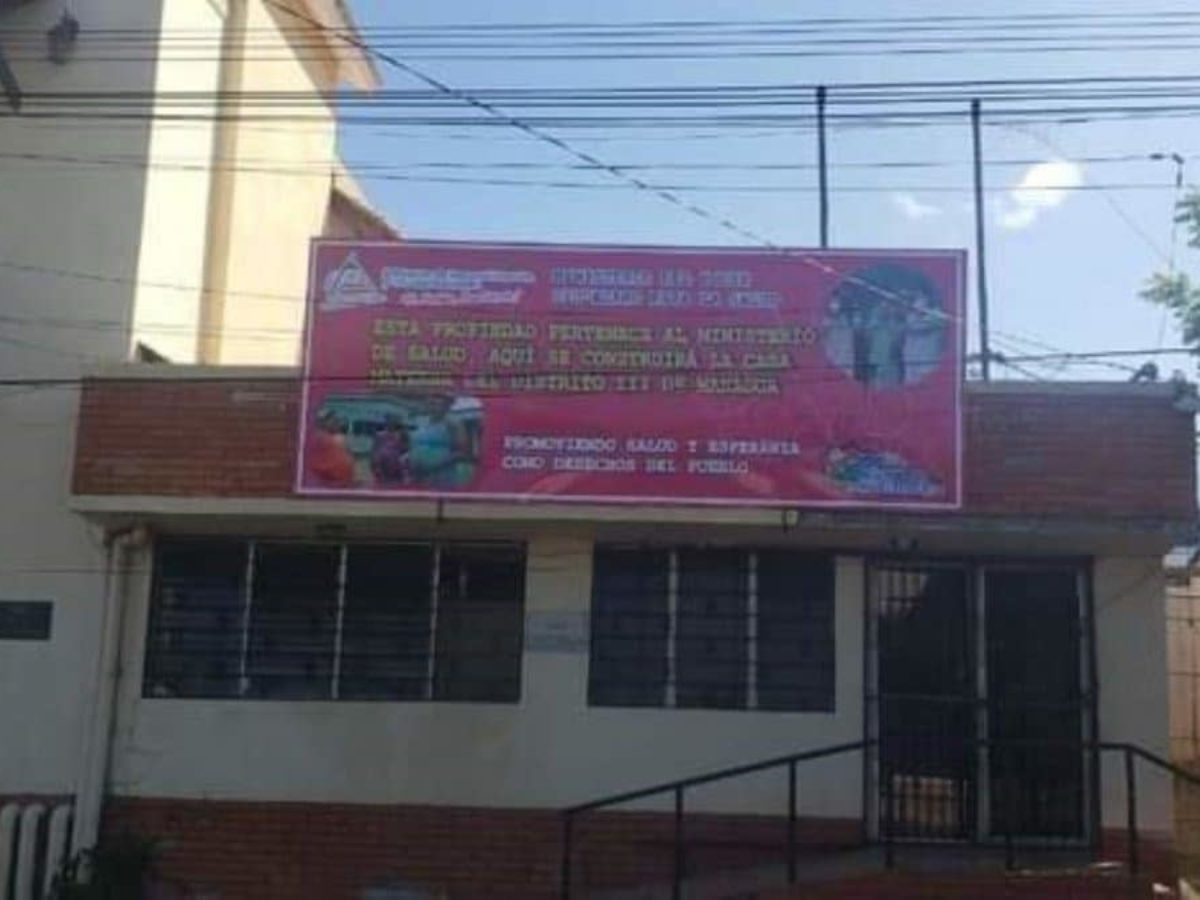
A maternity center is now operatin at the Cenidh offices
Ortega decided to continue with the scheme of his predecessors and kept law 147 on legal persons without profit –approved in 1992- when he returned to the presidency in 2007. That allowed him to issue rules enforced at his discretion. He tried to impose a controlling manual for the international cooperation resources in November 2008 as a first attempt to repress the NGOs, but the Supreme Court of Justice (CSJ) stopped him when accepting an application for amparo.
The first accusations and raids to five NGOs took place that same year. Among them was the Centro de Investigaciones de la Comunicación (Cinco), which counted with the well-known journalist Carlos Fernando Chamorro and the feminist Sofia Montenegro as members, both being Sandinista dissidents. Feminist leaders were also screened for more than a year, but the case was filed due to a lack of evidence.
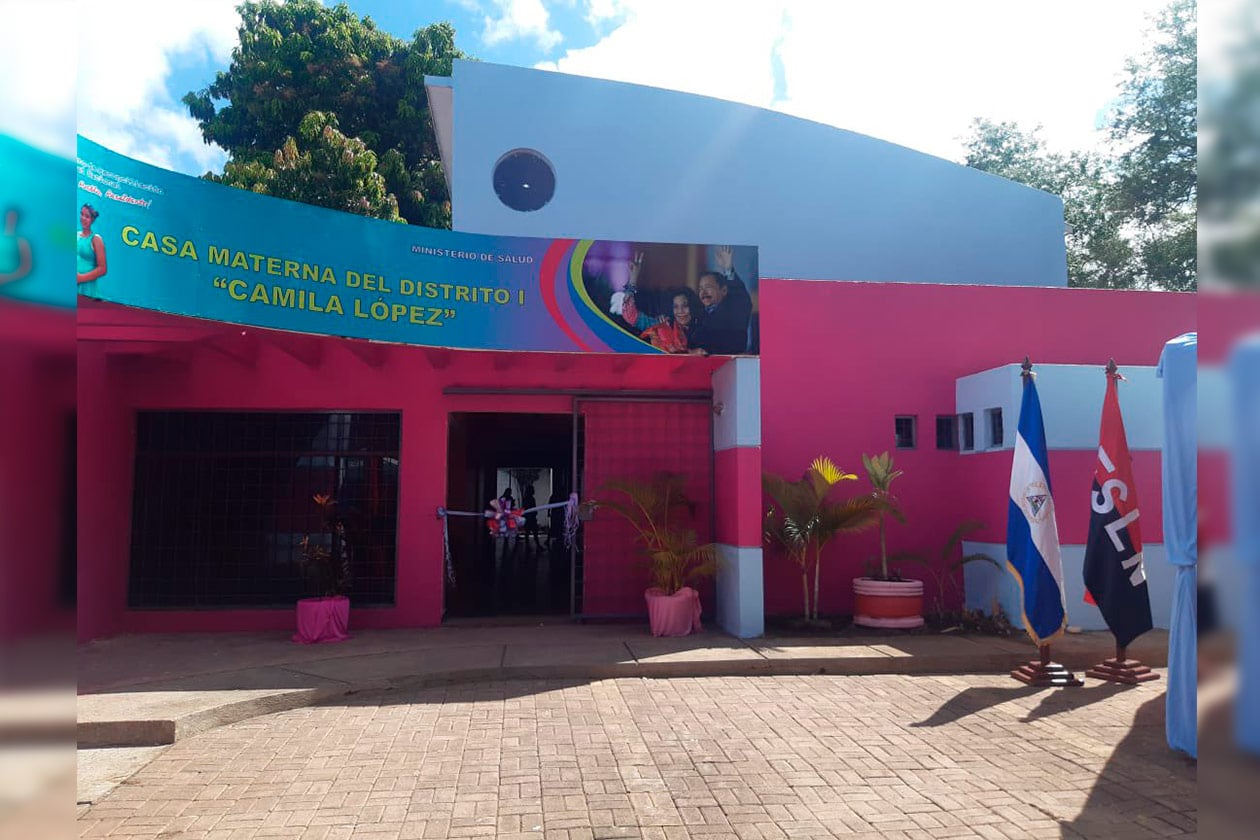
A maternity center is now operatin at the Cenidh offices
In September 2015, seven years later, Ortega enforced a new resources management system that compels cooperators to channel them through official institutions. This led to the withdrawal from the country of the United Nations Development Programme (UNDP). Through a new regulation, in December 2019, he forced the NGOs to undertake no political-party activities in their projects or programs.
Finally, in October 2020, he approved law 1040 on Foreign Agents Regulation which forces those receiving resources from abroad to register as “foreign agents” and report the use and affectation of the received resources.
The lawyer ensures that all these actions do violence to the right of association and expression of the organizations and the society as a whole.
To Ana Quirós, founder of the Centro de Información y Servicios de Asesoría en Salud (CISAS) –whose legal status was canceled in December 2018-, the most vulnerable population was the hardest hit by the war against the NGOs.
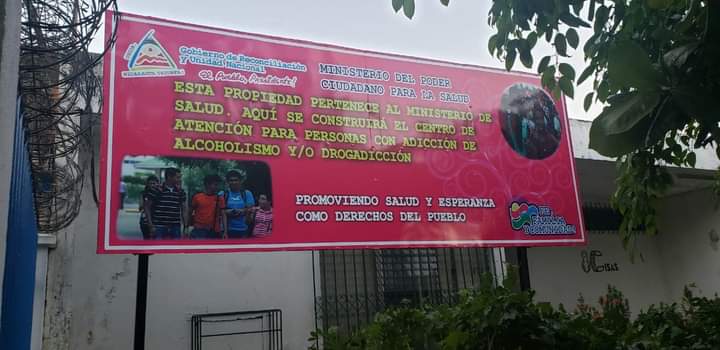
Cisas después de la confiscación
CISAS has worked in health communication and education since 1983 –though the legal status was granted to it in 1990. It mainly dealt with children, adolescents, youngsters, women, and sexual diversity groups. Its priority was an education for preventing violence, crime, and adolescent pregnancy, like the one that caused the death of the girl in Laguna de Perlas. The groups who worked with CISAS are now left behind.
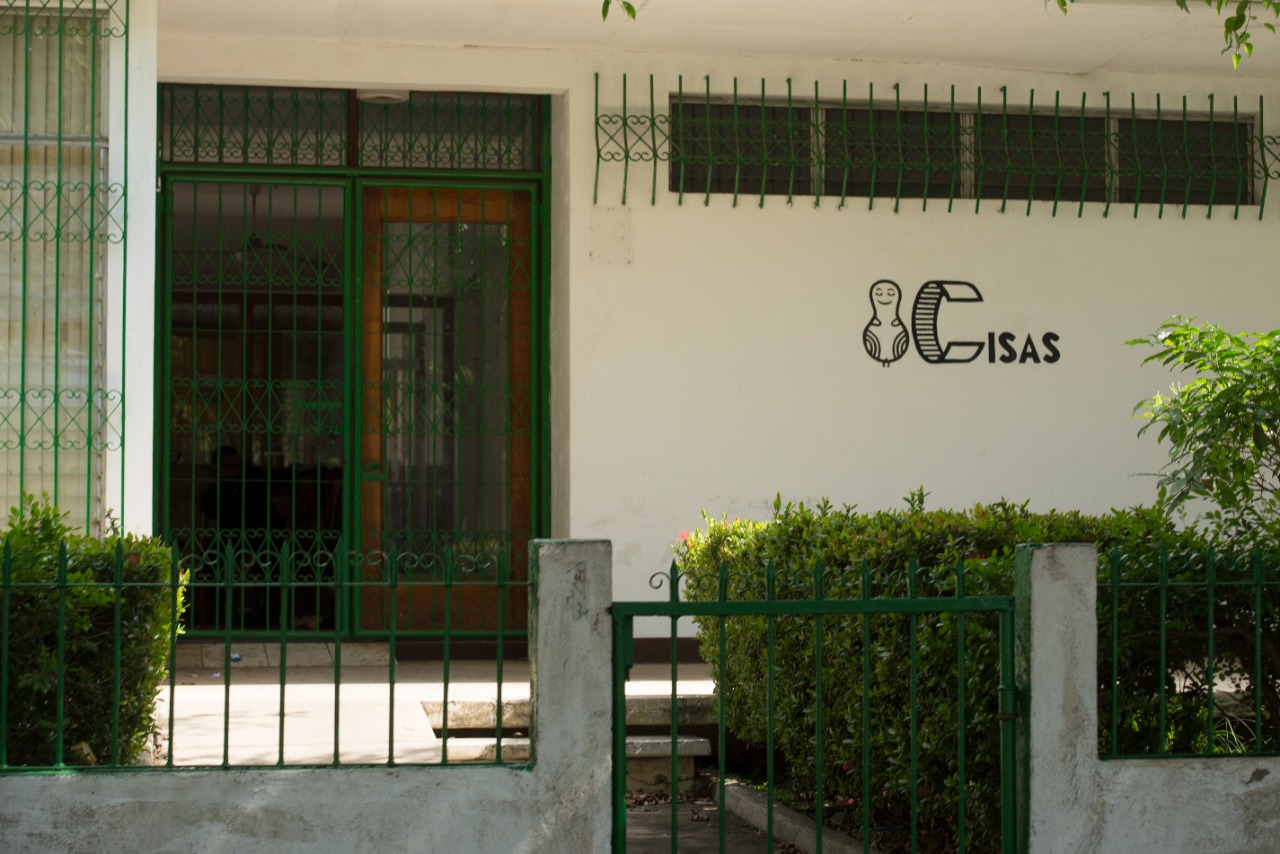
Cisas after the seize
Quirós is a social activist, a daughter of Mexicans, and was born in Costa Rica. She was part of the Sandinista Front for National Liberation (SFNL), arrived in Nicaragua in the 80s, worked for Minsa, and later founded CISAS. In 1997 she obtained Nicaraguan citizenship, but after living in the country for almost 40 years, in November 2018, it was revoked, and she was deported. A few days later, CISAS's legal status was canceled and its property was confiscated.
According to Quirós, the governments have historically been jealous and wanting to seize the resources administered by the NGOs: “Especially in Daniel Ortega’s government, the main interest is that the NGOs stop opening the communities’ eyes because he considers that them, the population, cannot view, analyze and identify all the abuses and crimes the organizations perpetrate. They imagine people are blind, deaf and speechless, and, overall, mentally disabled. This government has a very derogatory idea of the population”.
The war of Ortega and Murillo against the NGOs worsened after the social outburst in April 2018, it is obvious. From the nine canceled that year, HD, el Ieepp, el Ipade, el ILLS, and Fundación Popol Na implemented projects to promote citizens’ participation and to strengthen local leadership, among others. But this year, the Sandinista government roughed up the organizations linked to the health field.

The Cenidh fwas on of the firsts organizations to have its legal status cancelled in December 2018, after thirty years of being a human rights advocate under the leadership of Vilma Núñez, a well-known Sandinista dissident.
“The government ignored and minimized covid-19”
Epidemiologist Leonel Argüello worked in Minsa since the 80’s, and later founded the Centro de Estudios y Promoción Social (CEPS). He is also a well-known Sandinista dissident. Lacking an official policy to face the covid-19 pandemic, he led it for the Nicaraguan population, together with other doctors, and became a source of information for independent media dealing with the state censorship.
In 2020, at the height of the pandemic, Ortega’s government canceled the legal status of the Asociación de Hermanamientos Municipales (Asodhermu), which supported social projects in Camoapa, Chontales. That organization was implementing a municipal campaign to stop covid-19 dissemination when gone.
In contrast, the legal status of Argüello’s NGO was recently canceled, in July 2021. Another 15 organizations related to the health field had also their legal status canceled. Among them are Pro Ayuda a Enfermos con Insuficiencia Renal Crónica-Las Segovias, la Nicaragüense de Nefrología, the Internacional por la Salud Nicaragua, the Nicaragüense de Diabetología, the Nicaragüense de Neumología, the Nicaragüense de Climaterio y Menopausia, the Urológica de Nicaragua, the Liga Nacional Contra la Leucemia y el Cáncer en el Niño, the Sociedad Nicaragüense de Medicina General, the Médica Nicaragüense, the Nicaragüense para el Estudio y Tratamiento del Dolor, the Nicaragüense de Dermatología y Sifilología, the Nicaragüense de Anestesiología y Reanimación, the Nicaragüense de Infectología and the Asociación Nicaragüense de Psicólogos. Some of them worked for several decades.
The patients’ organizations normally worked on education, but also on jointly buying medicine to reduce costs. The director of one of them, who requested anonymity, explained that they are not unions and neither pretend to look for labor demands. During the pandemic, they have played a relevant role in preventing and attending to the cases.
Their main objective was to guarantee academic training and update for their members as well as the participation of local doctors in forums, congresses, and other activities taking place at an international level, and into which many of them cannot participate individually. Therefore, their closure affects all the population, and overall, the patients who need their doctors to be permanently trained in techniques and new treatments to beat diseases.
For Argüello, it is a big mistake to block the collaboration of the health field given that the public systems being very good, they always need the contribution of such because they have a limited capacity. The health public system is complemented in some working areas by these organizations, but in some others, they covered it when there is no public service.
Many times, they even offer a service of better quality than that of the state’s health system because they remain in the place, have direct contact with the population, are deeply knowledgeable about their problems, influence to modify harmful practices, and constantly monitor the situation. Another important aspect is that the approach of the NGOs is comprehensive and constant; on the contrary, a medical brigade occasionally visits them.
Argüello attributes the Ortega-Murillo regime’s war against the NGOs to the prestige and support they have gained thanks to the results through their work as they offer comprehensive solutions to the problems. For example, the improvement of the access roads, the use of quality seeds, or the appropriate storage of the harvest in rural communities, though not being issues related to health, they guarantee that the population has adequate food to stay healthy.
“The government ignored and minimized covid-19 despite its capacity to attend the situation –points Argüello out. What it did, was to consider the pandemic as a political matter, and they don’t like any other voice informing about what is happening.
The epidemiologist does not see an economical interest from the government in its confrontation with the NGOs. He exemplifies it with the cooperation agencies, including the United Nation’s agencies, that had left the country due to Ortega’s laws: never has a government achieved to have those resources pass through its hands. He estimates that the same thing is going to happen with the funds that the organizations closed up to date managed; it is money that will no longer arrive in Nicaragua.
It's not enough for Nicaragua's Ortega-Murillo regime to jail scores of journalists, activists, and political opponents. Their latest repressive act is cancelling the registration of 6 foreign NGOs such as Oxfam amid accusations under new repressive laws. #PresosPorQué
— Bureau of Democracy, Human Rights, and Labor (@StateDRL) August 17, 2021
This may happen with the funds that the National Democratic Institute for International Affairs (NDI), the International Republican Institute (IRI), the Oxfam Intermon Foundation, Oxfam IBIS, Diakonia, Helping Hands the Warren William Pagel, and M.D. Foundation provided with local NGOs so that they could implement projects. Their legal status was recently canceled, and even they have not made a statement yet, inner circles have expressed that they will hardly continue investing in Nicaragua.
Gracias por vuestra solidaridad tras la decisión del gobierno de Nicaragua de cancelar nuestro registro en el país. Llevamos más de 40 años cooperando con el pueblo de Nicaragua, cumpliendo siempre con la legalidad. Esperamos seguir haciéndolo en el futuro https://t.co/5aQV7MJghZ
— Oxfam Intermón (@OxfamIntermon) August 17, 2021
Argüello neither sees a retaliation against former Sandinista personalities: “It is a power exhibition to force everyone to do what they want them to, and avoid the disclosure of information to create their reality having no one arguing about it”.
Nonetheless, Quirós do identifies it as a personal retaliation of Ortega and Murillo against former Sandinista members, many of the founders of the organizations whose legal status has been canceled.
As an example, he mentions that seven out of nine of the ones canceled in 2018 had a Sandinista origin. Among them are Ipade and Popol Na, from former guerrilla commanders Jaime Wheelock y Mónica Baltodano, respectively.
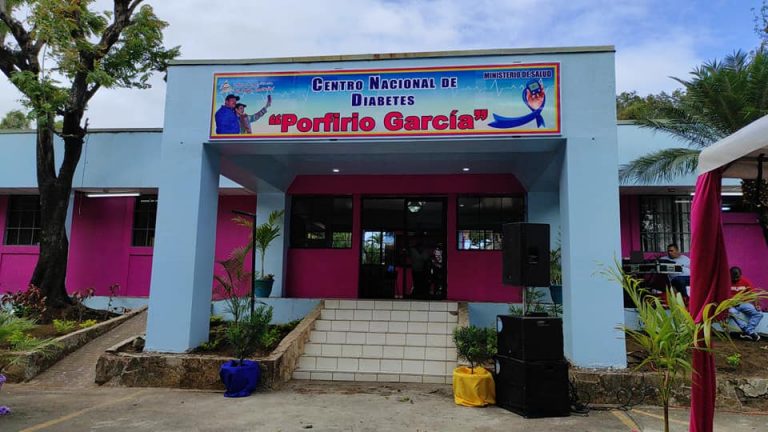
Edificio del IPADE ahora convertido en Centro de Salud
For Quirós, retaliations started in October 2006 as a response to the support given to Zoilamérica’s charges, when the cotes of the Sandinista congressmen approved the total prohibition of abortion.
Those consulted agree on the fact that the Sandinista regime’s accusations are “foolish” because they enforce Law 977 against money laundering to them. NGOs cannot do so due to existing controls in Nicaragua; cooperation resources’ reception is controlled by the State.
Moreover, according to legislation, money laundering has an illegal origin, and the cooperation resources come mainly from public funds, then are legal, even if in many cases they arrive through specialized agencies.
And, while the Ortega-Murillo regime continues to eliminate organizations that offer many services that the State is not able to guarantee, especially in distant communities where they hardly arrive, the adolescents keep getting pregnant and sometimes dying because of the lack of appropriate attention, as recently occurred in Laguna de Perlas.
According to Wilson, the need to reorganize as many NGOs have closed because many problems are getting worse during a social-political crisis the country is facing. “There are pregnant girls of 13, 14, 15 years old… and prostitution is widespread. We must work with parents and adolescents because the parents are losing authority with their children”, assures Wilson.
The feminist leader regrets that Acción Médica Cristiana, which offered health services in the Nicaraguan Caribbean for several decades, is within the group of organizations that will soon have their legal status canceled as there are spaces that are left empty, and the State will hardly fill them in.
She assures that, at the moment, the only remaining thing is the will of the organizations’ leaderships to keep educating youngsters and establish mechanisms to spread the message. Though, she is aware of the fact that many services and benefits are going to be lost and that the population will rely on poor public health services.

